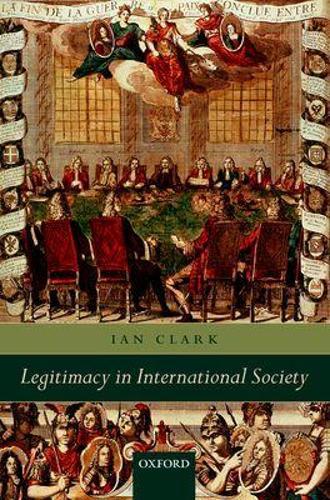Overview
The word 'legitimacy' is seldom far from the lips of practitioners of international affairs. The legitimacy of recent events - such as the wars in Kosovo and Iraq, the post-September 11 war on terror, and instances of humanitarian intervention - have been endlessly debated by publics around the globe. And yet the academic discipline of IR has largely neglected this concept. This book encourages us to take legitimacy seriously, both as a facet of international behaviour with practical consequences, and as a theoretical concept necessary for understanding that behaviour. It offers a comprehensive historical and theoretical account of international legitimacy. It argues that the development of principles of legitimacy lie at the heart of what is meant by an international society, and in so doing fills a notable void in English school accounts of the subject. Part I provides a historical survey of the evolution of the practice of legitimacy from the 'age of discovery' at the end of the 15th century. It explores how issues of legitimacy were interwoven with the great peace settlements of modern history - in 1648, 1713, 1815, 1919, and 1945. It offers a revisionist reading of the significance of Westphalia - not as the origin of a modern doctrine of sovereignty - but as a seminal stage in the development of an international society based on shared principles of legitimacy. All of the historical chapters demonstrate how the twin dimensions of legitimacy - principles of rightful membership and of rightful conduct - have been thought about and developed in differing contexts. Part II then provides a trenchant analysis of legitimacy in contemporary international society. Deploying a number of short case studies, drawn mainly from the wars against Iraq in 1991 and 2003, and the Kosovo war of 1999, it sets out a theoretical account of the relationship between legitimacy, on the one hand, and consensus, norms, and equilibrium, on the other. This is the most sustained attempt to make sense of legitimacy in an IR context. Its conclusion, in the end, is that legitimacy matters, but in a complex way. Legitimacy is not to be discovered simply by straightforward application of other norms, such as legality and morality. Instead, legitimacy is an inherently political condition. What determines its attainability or not is as much the general political condition of international society at any one moment, as the conformity of its specific actions to set normative principles.
Full Product Details
Author: Ian Clark (Professor of International Politics, University of Wales Aberystwyth)
Publisher: Oxford University Press
Imprint: Oxford University Press
Dimensions:
Width: 15.60cm
, Height: 1.60cm
, Length: 23.30cm
Weight: 0.438kg
ISBN: 9780199219193
ISBN 10: 0199219192
Pages: 290
Publication Date: 06 September 2007
Audience:
Professional and scholarly
,
Professional & Vocational
Format: Paperback
Publisher's Status: Active
Availability: To order

Stock availability from the supplier is unknown. We will order it for you and ship this item to you once it is received by us.
Reviews
Ian Clark's book offers the most comprehensive analysis of legitimacy in international relations available today, in the process breathing new life into the concept of international society. Few international relations scholars today can demonstrate such range and relevance. --Perspectives on Politics<br> In short, this is a superb, provocative volume that has in one swoop placed legitimacy firmly on the agenda and significantly raised the intellectual bar on its study. It is essential and rewarding reading. --International Affairs<br> Ian Clark's Legitimacy in International Society is a timely contribution...Clark has provided us with a rich understanding of the role of this concept in IR, and in doing so has secured its place in the English Schools lexicon. --Political Studies Review<br> 'Clark's book deserves a wide reading. He seamlessly incorporates history and theory into an insightful analysis of an important concept. --Politics and Ethics<br> Clark provides one of the most systematic and historically informed accounts of international legitimacy to appear in many years. --Foreign Affairs<br>
<br> Ian Clark's book offers the most comprehensive analysis of legitimacy in international relations available today, in the process breathing new life into the concept of international society. Few international relations scholars today can demonstrate such range and relevance. --Perspectives onPolitics<p><br> In short, this is a superb, provocative volume that has in one swoop placed legitimacy firmly on the agenda and significantly raised the intellectual bar on its study. It is essential and rewarding reading. --International Affairs<p><br> Ian Clark's Legitimacy in International Society is a timely contribution...Clark has provided us with a rich understanding of the role of this concept in IR, and in doing so has secured its place in the English Schools lexicon. --Political Studies Review<p><br> 'Clark's book deserves a wide reading. He seamlessly incorporates history and theory into an insightful analysis of an important concept. --Politics and Ethics<p><br> Clark provides one
Author Information
Educated at Glasgow University and Australian National University. Professor of International Politics at Aberystwyth since 1998. 1984-1997 University of Cambridge. Fellow of the British Academy. Honorary Fellow of Selwyn College, Cambridge. Author of several books from OUP, including Legitimacy in International Society, The Post-Cold War Order, Globalization and the Theory of International Relations; and Globalization and Fragmentation.




